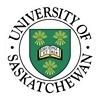Feeding Trial and Dairy Performance Evaluation Using Faba Bean Seeds: Effects of Raw and Steamed Pressured Faba Bean Seeds in Diets of High Producing Dairy Cows
The existence of alternative feed ingredients of good nutritional value is important for the livestock industry. Introducing new feeding options requires reliable information to prove beneficial or detrimental impacts on animal productivity. Hence, this study aimed to evaluate the use of raw and steamed Faba bean seeds (FBS) as an alternative for traditional feeding ingredients used in lactating dairy rations such as soybean and barley grain. A pilot study, using a batch reactor (Saskatoon Boiler Mfg.) for thermal hydrolysis, was performed to process Snowbird whole Faba bean seeds at 120 °C for 0, 7.5, 15, and 30 min. Eight high producing Holstein cows (2nd and 3rd lactation, 69 ± 15 days in milk, and 720 kg mean body weight) were fed in a total mixed ration (TMR) with 10% FBS inclusion for 120 days. Data were analyzed using the MIXED procedure of SAS 9.4. A Latin Square (4x4) design was used with fix effect (treatment), and random effect models (cows and periods). Polynomial contrasts were used to evaluate the effects of treatments with significance declared at P<0.05. Results showed a response to the TMR starch intake (linear P=0.01) increasing from 5.46 kg/d with raw seeds (TMR_0) up to 5.97 kg/d with seeds processed for 30 min (TMR_30). The average milk yield and fat content for all the diets were 39.4 kg/cow/day and 3.86 %, respectively (P>0.05). Feed efficiency reflected by the relation between energy corrected milk and dry matter intake (ECM/DMI) decreased as processing times increased (linear P=0.02) from 1.63 with TMR_0 to 1.52 with TMR_30. Milk urea nitrogen (MUN) decreased from 12.18 mg/dl with TMR_0 to 11.10 mg/dl with TMR_30 (cubic P=0.04). Based on the current findings, a potential use for FBS in ruminant diets is presumed, as no negative effects were observed on the production performance of high producing dairy cows fed total mix rations (TMR) with 10% inclusion. Thus, we concluded that raw or heated FBS could be a promising feed alternative for the dairy industry as partial replacement for soybean meal and barley grain. Future studies are still needed to sustain the reported results. Optimal processing method, processing time, and level of inclusion of Faba bean seeds remain broad fields of research in ruminant systems.
Key words: faba bean; steam-pressured toasting; dairy cows.
Presented at the 2022 Animal Nutrition Conference of Canada. For information on the next edition, click here.











